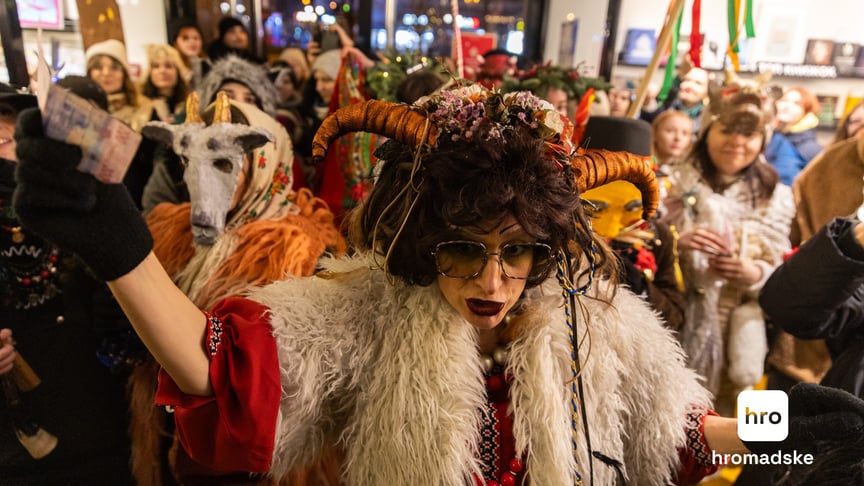In the heart of Kyiv, Malanka festivities took place, gathering funds for "cotton" (PHOTO REPORT).

The Malanka procession took place from Shevchenko Park to Independence Square, accompanied by music, songs, and festive bells.
Participants of the event continually reminded the audience that they were collecting funds to help create a "bang" and "pop" for the Russian troops.
 0
0 1
1 2
2The Malankari collected money both in cash using a special box and via QR codes linked to volunteer accounts. It is noted that the funds raised will be directed toward drone control points.
Why is Malanka celebrated "so early"?
Previously, the Malanka holiday in Ukraine was celebrated on the night of January 13-14, coinciding with the Old New Year. However, after the transition to the new Julian calendar, the date shifted, and now the Generous Evening is celebrated from December 31 to January 1.
The celebration of Malanka originates from an ancient, likely pre-Christian custom, but in Ukrainian folk tradition, it coincides with the honoring of Saint Melania—the nun who lived in the 5th century in the Roman Empire.
On January 1, Saint Basil the Great is also honored, which is why the Generous Evening is sometimes referred to as Basil's Eve.
In Ukrainian culture, holidays are expressed through "pereberia"—a folk carnival where participants dress up as characters and perform their roles.
Thus, the main characters of this celebration are Malanka and Basil, portrayed by a young man and woman, along with a Goat, a Jew, a Doctor, Devils, etc. On this day, special songs known as "shchedrivky" are performed, and hosts are congratulated on the New Year, wishing them prosperity in the future.